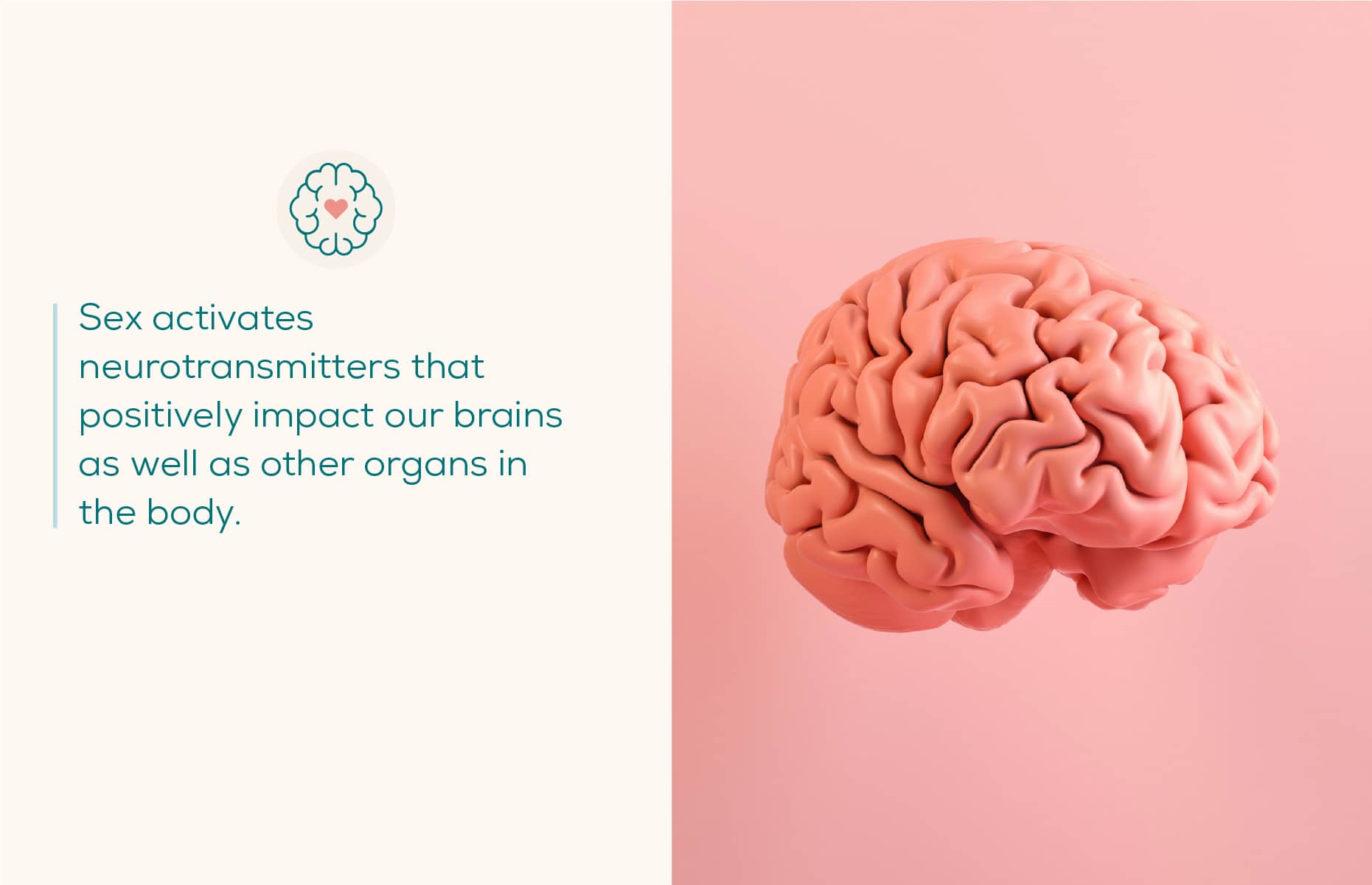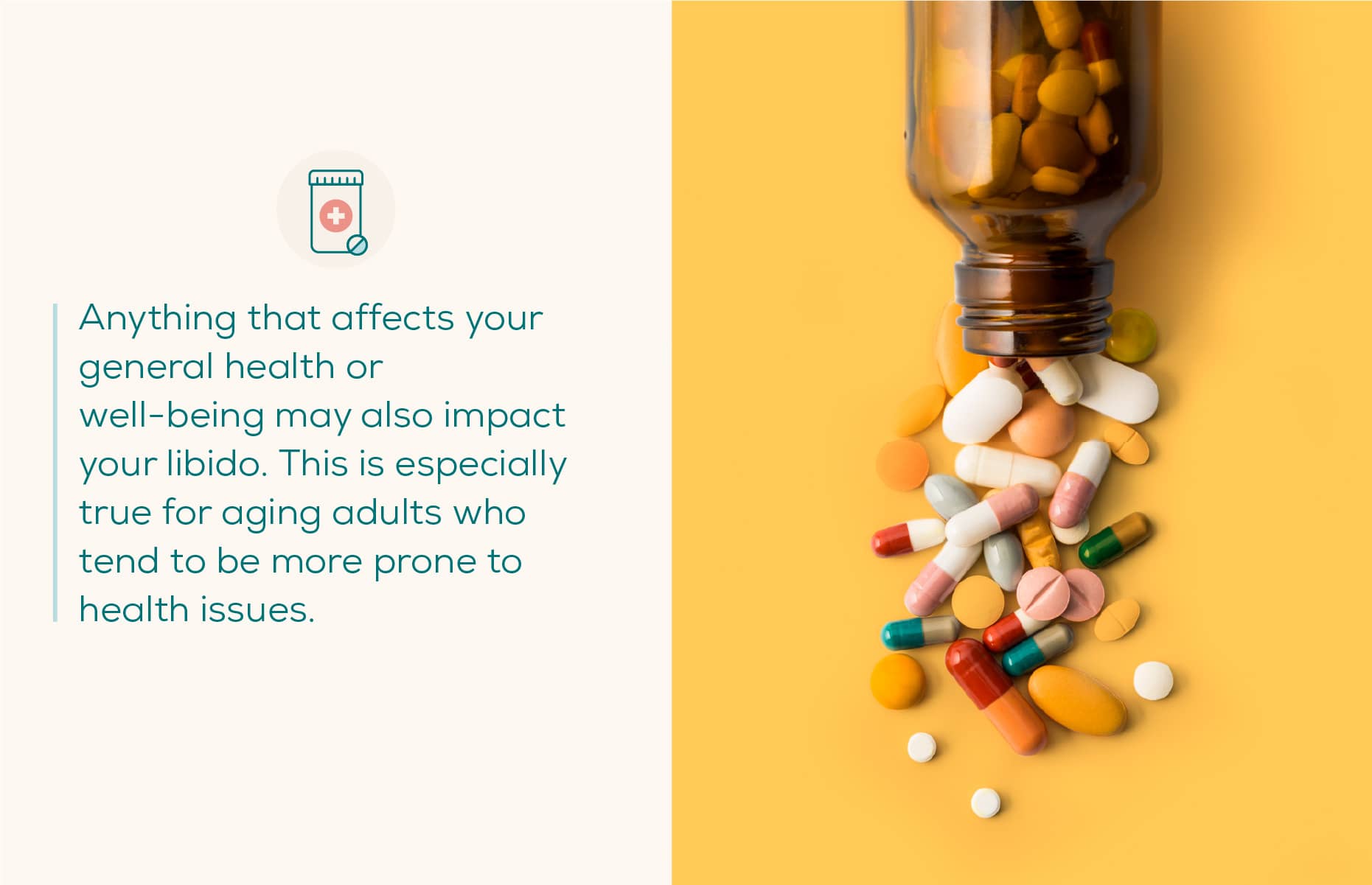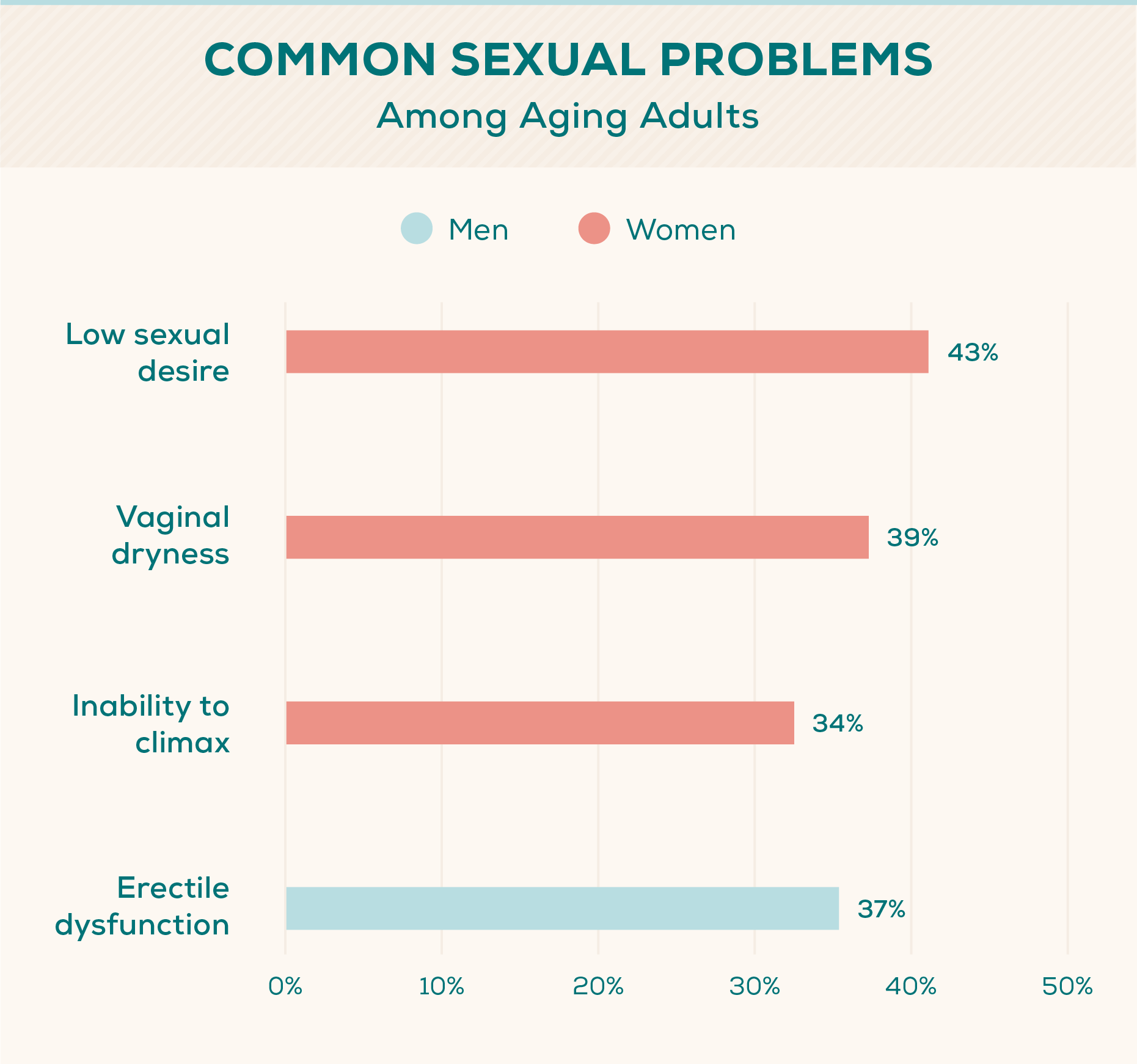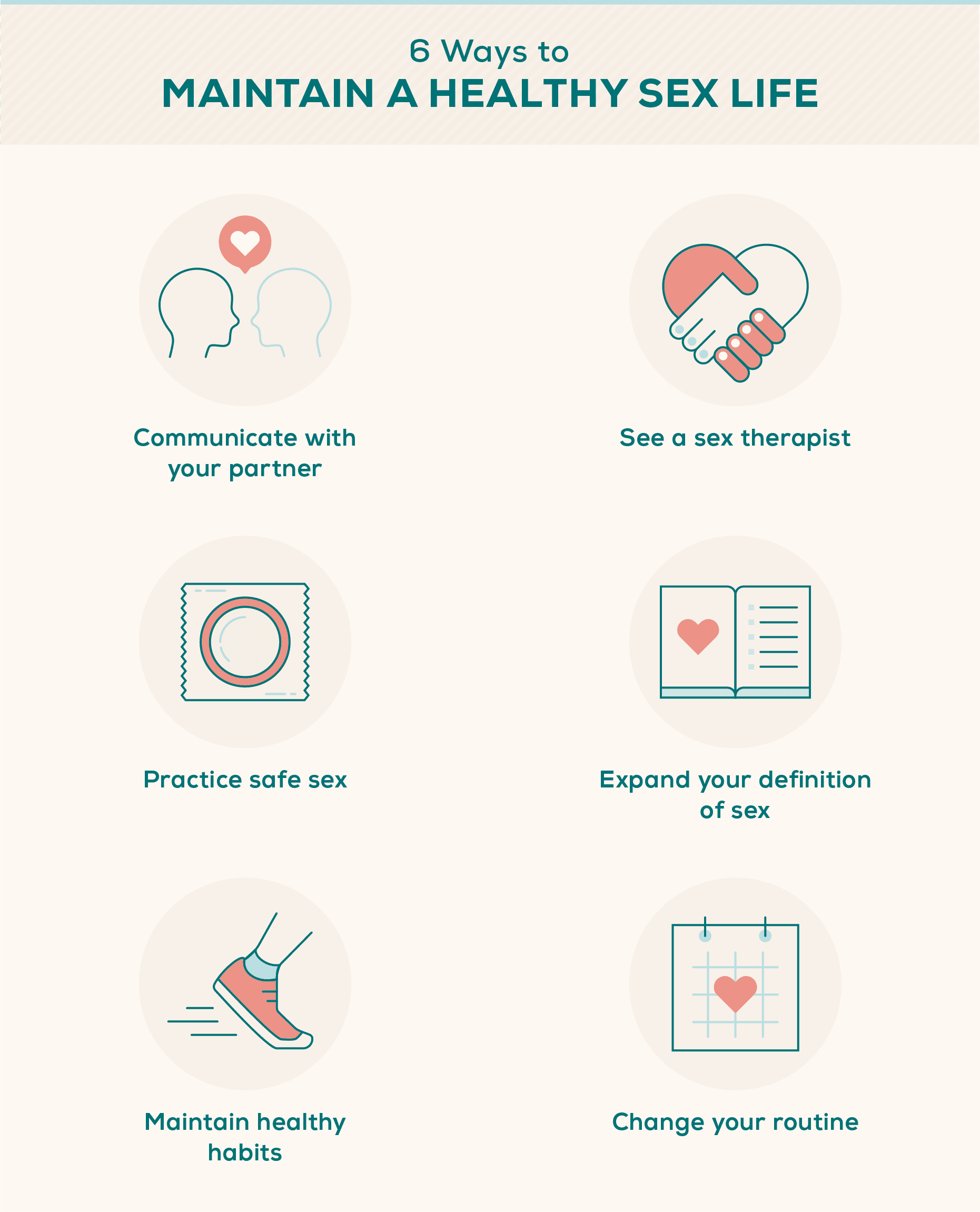
Sexuality and aging: Your guide to maintaining sexual health
A lot of things begin to change as we get older, but sexual satisfaction doesn’t have to be one of them. For those who want to remain sexually active, the physical changes that occur when your body ages could affect how you respond to sexual activity. Physical challenges and health complications could make it more difficult to perform at your best and feel fulfilled during intercourse. For both men and women, factors like hormones (including testosterone), stamina, and sexual function may all change as a result of aging and impact sexuality.
While sex may look and feel a little different as you get older, making a few adjustments to your sex routine could help make intimacy possible and pleasurable through the years.
Making these adjustments starts with understanding the various changes in your body that could affect your libido—and how to best handle them.
Read on as we break down exactly what happens to your body as you age and provide simple tips to increase intimacy and enjoyment as you get older.
Table of Contents:
- The Health Benefits of Intimacy
- How Does Sexuality Change with Age?
- What Can Impact Sexuality as You Get Older?
- How to Increase Sex Drive
- Tips for Maintaining Sexuality as You Age
- Additional Resources
The Health Benefits of Intimacy for Older Adults
 Not only can intimacy be a rewarding part of a relationship, but it can also be beneficial for your health—which can be important for aging individuals who may be more prone to health-related issues. Sex activates neurotransmitters that not only positively impact our brains but several other organs in our bodies.
Not only can intimacy be a rewarding part of a relationship, but it can also be beneficial for your health—which can be important for aging individuals who may be more prone to health-related issues. Sex activates neurotransmitters that not only positively impact our brains but several other organs in our bodies.
Having sex could actually improve aspects of your health and potentially even prolong your life. Some of the health benefits of sex may include lower blood pressure, decreased depression and anxiety, better heart health, pain relief, a stronger immune system, and better sleep—just to name a few. For men, regular sexual activity and ejaculations have been linked to a decreased risk of prostate cancer.
How Does Sexuality Change with Age?
Sexual health and intimacy are important at any age. In fact, research tells us that 65% of seniors between the ages of 65 and 80 are still interested in sex. While the majority of seniors want to remain sexually active, the natural aging process may put a strain on one’s ability to fulfill sexual desires.
Both men and women will need to learn how to navigate the changes that happen to their bodies in order to reach their sexual potential. Below we’ve listed a few common changes that occur as people age that may inhibit an active sexual life—and how to handle them.
Common Physical Changes in Aging Men
Most men maintain at least some of their sexual function and interest in their 60s and 70s; however, it may come with complications. Typically, as men get older, their testosterone levels begin to gradually decline. After the age of 30, total testosterone levels decline about 1% each year—which plays an important role in a man’s sexual function.
For men, a decrease in testosterone can result in various physiological changes which may include:
- Difficulty producing or maintaining an erection
- Shorter orgasms
- Less semen ejaculated
- Longer recovery time needed to achieve another erection after ejaculation
Testing your testosterone levels is an effective way to check in on your testosterone levels as you age. For an easy and convenient way to test your testosterone levels, take an at-home testosterone test and share your results with your healthcare provider. it This can also help you know if any adjustments might need to be made to improve sexual function.
Common Physical Changes in Aging Women
For many women, physical changes begin to take place during perimenopause and postmenopause. This is due to a decrease in estrogen—a major female sex hormone responsible for sexual and reproductive function—that occurs in the body as you age. A decline in estrogen can affect your sexual function directly, through symptoms like vaginal dryness, as well as indirectly with symptoms like lack of energy or changes in mood—which may hinder your desire for sexual activity.
For women, a decline in estrogen could result in the following physiological changes that could impact sexual function:
- Decreased sexual responsiveness
- Vaginal dryness
- Changes in your mood
- Lack of energy
- Painful intercourse due to vaginal atrophy (thinning of the vaginal walls)
- Anorgasmia or difficulty reaching orgasm after sexual stimulation
Not all women experience these symptoms that can affect sexuality; however, if you do there are ways to enjoy sex despite these physiological changes. Taking a women’s hormone test may be a helpful step to take so you can determine your hormone levels and share any abnormal results with your healthcare provider.
What Can Impact Sexuality as You Get Older?

There are several things that can impact sexuality as you get older—in general, anything that affects your health or well-being may also take a toll on your libido. Aging adults may experience difficulty with sexual function from the hormonal changes that come with age, or from a medical condition such as arthritis, dementia, high blood pressure, chronic stress, diabetes, anxiety, or depression.
Additionally, medications used to treat the conditions listed above could also hinder one’s sexual response—making it difficult for seniors to get aroused or reach an orgasm. That said, if you think your medication is responsible for side effects related to sexual dysfunction, consult your primary healthcare provider as they may be able to switch you to a different medication.
How to Increase Your Sex Drive As You Age

If you experience a decrease in your libido, there are several things you can do to increase your sex drive. Since low libido in men is frequently related to a testosterone deficiency, testosterone replacement therapy may help restore sex drive.
Testosterone replacement therapy can be done through injections or topical gels. Be cautious of over the counter supplements as one study found only 24.8% of supplements claiming to boost testosterone had any data supporting their claims.
If you are suffering from erectile dysfunction (another side effect of testosterone deficiencies) oral medications prescribed by your primary healthcare provider may also improve functionality.
Women may experience decreased libido or be diagnosed with hypoactive sexual desire disorder due to physiological or psychological factors. This condition can often be improved with professional counseling or with medication prescribed by your primary healthcare provider.
As a result of a low libido or estrogen levels, women may also experience vaginal dryness or vaginal atrophy, making it difficult or painful to have intercourse— but using an over-the-counter, FDA-approved vaginal moisturizer or lubricant may help relieve symptoms. If you suffer from moderate to severe vaginal dryness, talk with your primary healthcare provider as they may be able to prescribe a topical or oral prescription medication.
Finally, communication is key for everyone. If you or your partner is experiencing a decrease in sex drive, discussing your needs and making a few changes to your sexual routine could improve sexual function and enjoyment.
Tips for Maintaining Your Sexual Health as You Age
 Sexual feelings don’t disappear as you age, but intimacy may become different for both you and your partner. It may not be the same as when you were in your 20s, but it can still be very fulfilling.
Sexual feelings don’t disappear as you age, but intimacy may become different for both you and your partner. It may not be the same as when you were in your 20s, but it can still be very fulfilling.
Intimacy can be a rewarding experience for your relationship and can be an important part of maintaining a healthy bond. It can be positive to view this as a new and exciting time in your and your partner’s life—a time to experiment and discover new aspects of sexual life.
Here are some tips for maintaining a healthy and enjoyable sex life:
- Communicate with your partner. Discussing both your desires and your boundaries clearly can help you cultivate a healthy and fulfilling sex life.
- Practice safe sex. Making sure you’re both prioritizing sexual health. If you have new or multiple sex partners, getting tested for STIs/STDs is recommended and could provide peace of mind during intercourse.
- Expand your definition of sex. As people age, it’s normal to have to adjust to new physical and sexual abilities. Luckily, there are several ways to be intimate—sex is only one of them. Touching, holding, and kissing can be rewarding and intimate parts of a relationship as well.
- Change your routine. Making a few changes to your usual sexual routine could improve your sex life. For instance, if it’s taking longer for you or your partner to get aroused, consider upping the foreplay or setting a romantic scene before having intercourse.
- Maintain healthy habits. Taking care of every part of your health could help you perform at your best sexually. Eating a healthy diet, exercising regularly, avoiding too much alcohol, and not smoking are all ways you can maintain your health and libido.
- Consider sex therapy. Sex therapists are professionals in guiding couples toward a healthy sex life. They may be able to help you and your partner communicate your sexual needs and concerns more effectively.
- Talk to your primary healthcare provider. Your healthcare provider can figure out if any underlying conditions are impacting your ability to enjoy or desire sex. They can also help you manage chronic conditions and medications that could inhibit sexual performance.
The physical changes that come with aging may cause you to enjoy sex differently, but that certainly doesn’t mean you have to give up on your sex life. Working through any new changes with your partner and/or healthcare provider is important for pursuing an active, satisfying sex life as you age. Declining hormone levels are a major contributor to low libido in both men and women, and taking the Everlywell at-home Testosterone Test, Men’s hormone test, Perimenopause Test, or Women’s Health Test can help you check in to see where your levels are for key hormones that can affect sexual health and well-being.
Additional Resources
- National Institute on Aging | Sexuality in Later Life
- Testosterone Levels by Age
- North American Menopause Society | Sexual Health & Menopause
- National Resource Center on LGBT Aging | Aging and Sexual Health
Related content
How often should you get tested for STDs?
38 STD and STI Statistics for College Students: How To Keep Yourself Healthy and Safe
STD Rates by State: Where Chlamydia, Gonorrhea, and Syphilis are Highest and Lowest